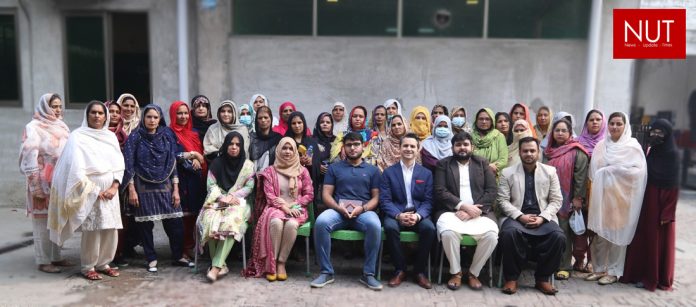Pakistan (Muhammad Yasir)
In a groundbreaking initiative, Careem, pioneer of ride hailing services in Pakistan, has partnered with the Lahore University of Management Sciences (LUMS) to launch “Asset-based Finance for Microenterprises in Pakistan’. The partnership is aimed at uplifting and empowering women in Pakistan by offering them the opportunity to become self-reliant entrepreneurs and contribute to the socio-economic growth of the country.
Through the partnership, initially 35 women registered themselves on the Careem platform as female rickshaw Captains, taking control of their destinies and fostering a more inclusive and equitable society. This is just the beginning, with the potential for further expansion, promising a tangible and transformative impact on the lives of these women and Pakistan’s workforce as a whole.
This collaborative project is conducted in partnership with the University of Oxford and prominent microfinance institutions including National Rural Support Programme (NRSP), Akhuwat, and Rural Community Development Programs (RCDP). It is funded through the GEA initiative of Abdul-Jameel Poverty Action Lab (J-PAL) at the Massachusetts Institute of Technology (MIT) . The project aims to address the challenges of gender inequality, limited employment opportunities, and safety concerns faced by women, particularly in the transportation sector.
This project marks a significant step towards empowering women in Pakistan, promoting financial inclusion, and enhancing women’s access to safe and reliable transportation. By combining the expertise of academia and industry, this partnership strives to drive positive change in Pakistan’s workforce, also aligned with the Sustainable Development Goals (SDGs) 2023.
Pakistan is currently ranked 151 out of 153 countries in the World Economic Forum’s Gender Gap Report 2021, highlighting significant gender disparities. Furthermore, according to the World Bank, only 22% of women in Pakistan are actively participating in the labor force. Recognizing the urgent need to address these disparities, the project is designed to empower women.
Commenting on the partnership, Jawdat Bilal, Head of Government Relations & Public Policy at Careem Pakistan said: “We are deeply enthusiastic about our involvement in this transformative project. Empowering women to become rickshaw drivers perfectly aligns with our core mission of simplifying and enhancing lives. We firmly believe that this initiative will not only lead to economic empowerment for these women but also contribute to the creation of a more inclusive and equitable society.”
Dr Kashif Zaheer Malik, Associate Professor LUMS stated: “The “Female Rickshaw Project” offers a range of benefits for females, including economic empowerment, financial independence and enhanced mobility. Female rickshaw drivers will make transportation safer for women and serve as inspirational role models for others. This project contributes to cultural shifts, fostering gender equity and women’s participation in the workforce and public spaces”.






